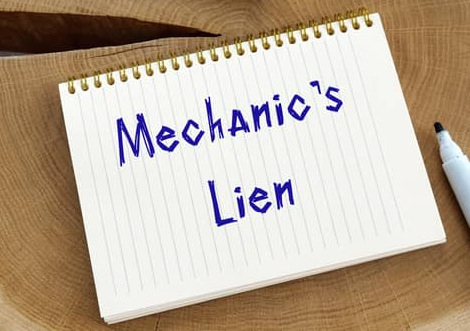Everyone hiring a contractor to perform work on or around their home must familiarize themselves with the mechanic’s lien state laws.
Have you heard about a mechanic’s lien? If you haven’t, you’re not alone. Find out what a mechanic’s lien is and why you must safeguard your home from one.
What Is a Mechanic’s Lien?
A mechanic’s lien is a security interest in real estate that protects individuals who have contributed labor or materials to improve the property. For both real and personal property, there is a lien.
If you have a problem with the contractor you hire for a build or repair, such as poor workmanship or if they walked off the job before it was finished or failed to finish the work promptly as promised, it can lead to a legal claim and settlement will be reached.
How Do Mechanic’s Liens Operate?
The following should not be construed as legal guidance. Instead, it will provide a brief on how mechanic’s liens operate.
Liens can be placed on your property for any number of reasons. In the instance of a mechanic’s lien, it will typically be placed because payment has not been rendered for services that were completed—even if you have a grievance with the company, such as work not being completed (in a timely manner or at all). Perhaps the worst part is that a lien can also be placed on your property by subcontractors the company hired to complete the project or the materials supplier that the company or contractor used.
Even if you think you’re justified in withholding payment for work done on your home, the contractor has the right to bring a lawsuit if you don’t pay. As you may have guessed by now, a mechanic’s lien is something you want to try and avoid.
Mechanic’s Lien Defense: What You Need to Do
Lien laws provide certain safeguards for owners of the property. There are several jurisdictions where the amount owed must be at least predetermined, notification of a lien being filed must be given to the property owner within a set time, and contractors have a specific number of days to file following completion of the work.
As a homeowner, the restrictions, which also apply to subcontractors and suppliers, can be a bit of a minefield. To protect yourself and your property, you should:
- Get lien releases from the contractor before making any additional payments that may be required after your down payment (in laypeople’s terms, make sure everyone that the contractor has supposed to pay has gotten paid)
- Ensure the lien is removed from public records as soon as the contractor receives payment
- Keep a personal file or log of any and all interactions related to the lien, including the initial file date, payment date, and removal date.
Once a lien has been paid, the contractor who filed it must remove either the notice or the lien from public records. Failure to do so leaves an opening for you, the property owner, to take legal action to have it removed.
As you can see, things get much more complicated once you start dealing with mechanic’s liens. Seeking legal advice can help smooth out some of the more delicate difficulties.
Contact Information:
Email: [email protected]
Phone: 6145554567













